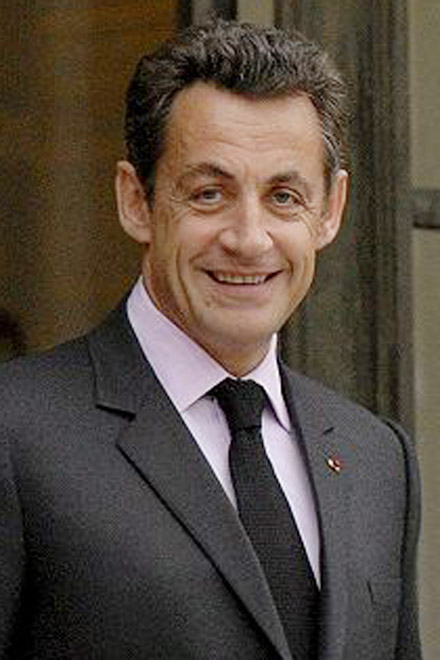Azerbaijan, Baku, July 10/ Trend U.Sadikhova /
The inevitability of the role of Syria in Lebanon's political life is the main reason why France has supported the development of relations between the two countries, but will continue to expand the influence of Damascus in Beirut, without third party mediation.
French President Nicolas Sarkozy told reporters on Wednesday that the Head of Syria Bashshar al-Assad has "kept his promises", which he gave to Paris with regard to Lebanon, French AFP agency reported.
In an interview with French TV channel "5", Sarkozy said that "when he resumed negotiations with Syria, after coming to the office of President, he faced with criticism."
"I have always considered that Syria's ignoring in resolving the problems of Lebanon said a lack of familiarity with the history of these two states," said Sarkozy.
French President added that now the situation in Lebanon is much better than it was two years ago, when he came to the office of President.
"There are no attacks, no bombings, the country has a government, there is a president, there is an exchange of ambassadors, which has not been any time in the history of Syria and Lebanon," said Sarkozy.
French President added that "the head of Syria al-Assad kept all his promises to establish stability in Lebanon."
Relations between Syria and France were resumed after the establishment of the Mediterranean Union in July 2008 in Paris. Presidents Sarkozy and al-Assad agreed upon the restoration of diplomatic relations between the countries.
Sarkozy's predecessor Jacques Chirac froze relations with Damascus after the assassination of former Lebanese prime minister and a close friend of French President Rafiq Al-Hariri in Beirut, of which the high-ranking Syrian officials are accused. But Syria denies the accusations.
Beirut also positively approached the restoration of relations between the future Prime Minister Saad al-Hariri, who until recently accused the Syrian leadership of the assassination of his father, and Damascus. Official website of Al-Hariri's Al-Mustaqbal Movement reported that al-Hariri's visit is not excluded to Damascus for the Syrian-Saudi-Lebanese summit, which is to be held on July 16. The analysts believe that due to Damascus's rapprochement with Saudi Arabia and France - close allies of pro-Western coalition of al-Hariri - it would be easier for the last one to form a new government, which should include representatives of Hezbollah, the party, which enjoys financial and political support from Syria.
However, Syria does not want to benefit from the support of France to restore its influence in Lebanon, including on the internal political situation, which Damascus lost after the withdrawal of troops in 2005 under pressure from the international community.
President Sarkozy's positive evaluation of the Syrian-Lebanese relations is linked with the fact that Syria still maintains strong links with a large number of Lebanese political forces, a Lebanese political analyst Talal Atrisi said.
"Sarkozy has chosen a different path rather than Chirac, Atrisi, professor of the Lebanese University, told Trend by telephone from Beirut. - France understood that it is better to cooperate with Syria rather than quarrel."
Atrisi does not exclude the effect of improving the Saudi-Syrian relations on the support of Paris to Damascus. France and Saudi Arabia understood the impossibility of the development of Lebanon without Syrian support, he said.
Samir al-Tagi, head of the Syrian Center for Middle East Studies, who considers the statements of France as recognition of Syria as one of the direct participants in the national reconciliation in Lebanon, agrees with him.
After the parliamentary elections on June 7, in which al-Hariri's March 14 coalition won, pro-Syrian front of Hezbollah and al-Hariri started negotiations to establish a national unity government.
I think that what we probably see is an extension of Syrian influence within Lebanon but it is not going to be a projection of its military strength as we saw in four five years ago, analyst on Syrian policies Neil Quilliam said.
"That influence is going to be much more political the military based, Quilliam, head of Middle East department of British Control Risk Center, told Trend by telephone from London. Syria will never give up its claim to Lebanon because it is, because this place plays an important strategic role in the region".
Lebanon believes that the future government can improve its relations with the Syrian government through negotiations of Damascus with Riyadh and Paris.
To establish a stable state, Al-Hariri should follow the advice of France and accept the Saudi plan calling on cooperation with Syria, said Atrisi.
However, al-Tagi, a former adviser in the office of Prime Minister of Syria, thinks that the Syrians abandon mediators in relations with the Lebanese.
He said that unlike the previous government, the current leadership of Lebanon has been able to strengthen itself within the Lebanese society, noting that economic cooperation with Damascus could also help Beirut return the strategic importance in the region.
France will not mediate in improvement of Syrian-Lebanese relations






